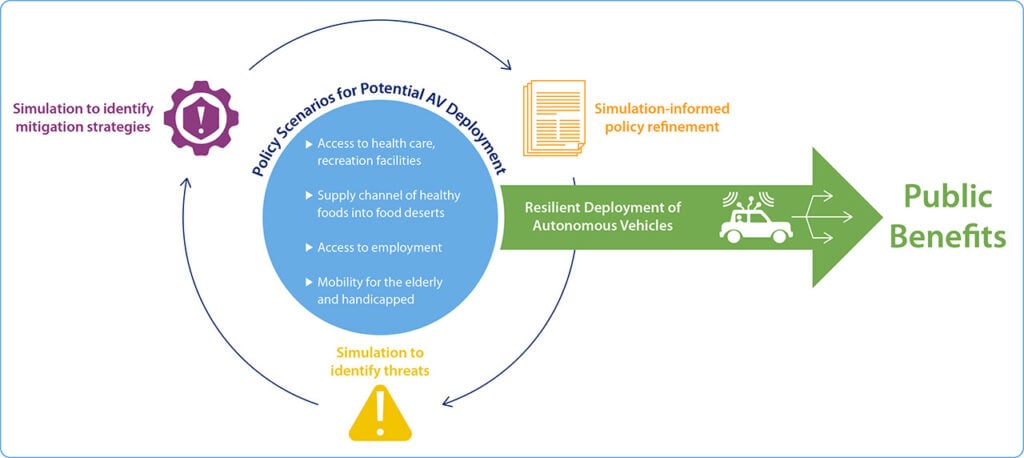Tak Igusa, Johns Hopkins Whiting School of Engineering
Joshua Mueller, Johns Hopkins Applied Physics Laboratory
Jeff Michael, Johns Hopkins Bloomberg School of Public Health
Johnathon Ehsani, Johns Hopkins Whiting School of Engineering/Bloomberg School of Public Health
For Autonomous Vehicles (AV) to realize their full potential delivering public benefit, their deployment in society needs to be guided with government policies that are informed by public opinion and validated by simulation. The AV sector is aggressively working to improve vehicle safety through advances in AI technology and enhanced testing. But successful deployment of AVs is threatened by negative perceptions based in part on a lack of acceptable public policies for their use. This project will create a policy framework to ensure AV technologies are acceptable based not only on their technological benefits, but also on their perceived benefit to society.
This project will also shape new simulation tools that will help inform the public of both positive and potential
negative impacts of AVs. These tools will help inform policy makers and proactively guide AV deployment for public
benefit. Ultimately, this project has the potential to accelerate the deployment and acceptance of AVs into society by
enabling development of both AV technology and effective policies.

Figure 1: Framework illustrating dynamic interplay between simulation cycle and policy development